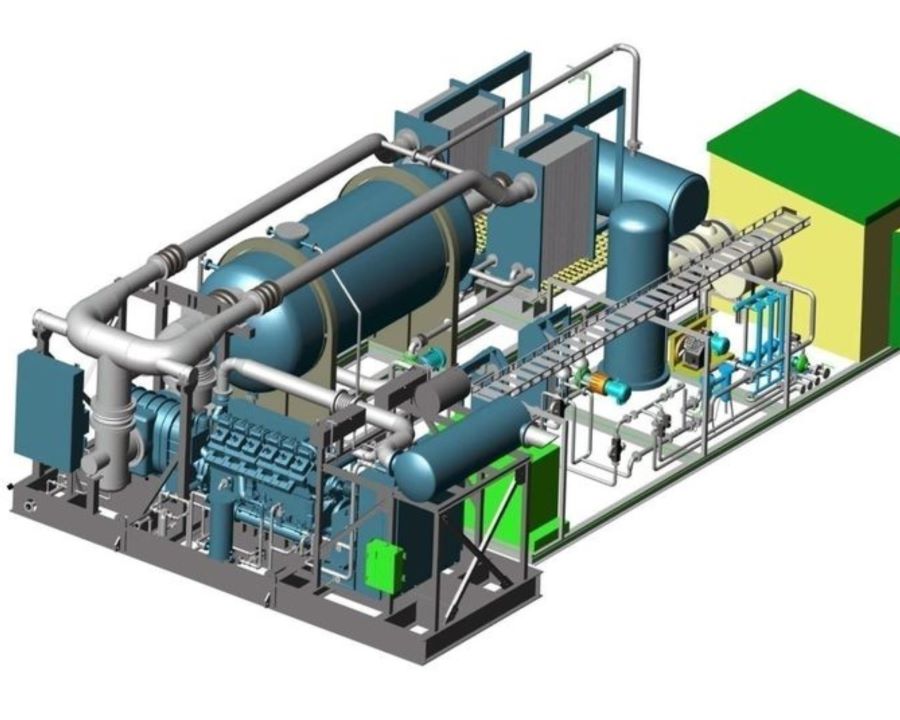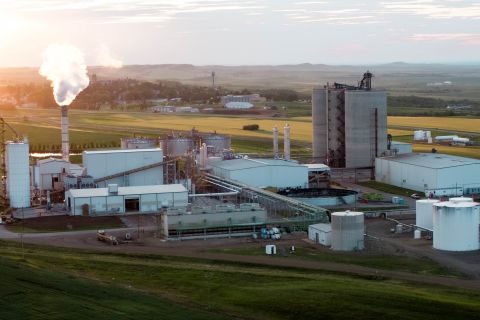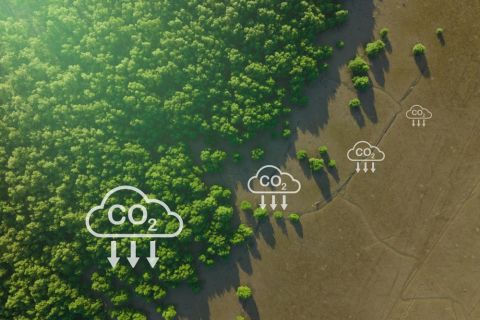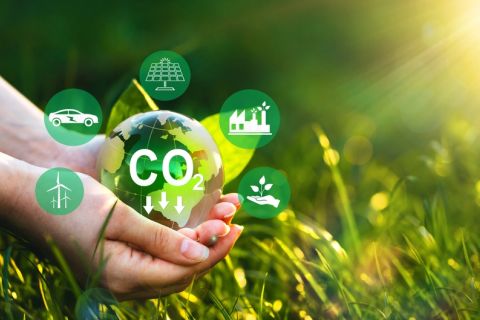With the goal of transforming climate health and carbon sequestration through soil health restoration instead of by mechanical means, Encore Green Technologies and Licensing (EGETL) plans to deploy its first redesigned NOMAD EXCEL desalination unit in Texas’ Permian Basin in fourth-quarter 2022.
The unit will take produced water and through a series of processes including desalination by distillation, to clean the water sufficiently for agricultural use, keeping it out of saltwater disposal (SWD) wells responsible for seismic activity.
Background

In 2021, EGETL purchased the original NOMAD distillation system and equipment from Fountain Quail/XRI Holdings. The goal was to resurrect that technology to treat produced water enough for agricultural applications, the bigger being to restore rangeland health in arid regions, creating opportunities for carbon sequestration. If fully utilized for pasture, orchards or crops, arable land in the U.S. is second only to the ocean itself in its capacity for carbon sequestration.
NOMAD was developed by Fountain Quail in 1999 as an economical way of desalinating produced water for reuse in hydraulic fracturing, which then required fresh water. As frac methods began to adapt to use slightly-treated produced water directly, the company retired NOMAD. It remained dormant until EGETL saw its potential as the final piece of its produced-water-to-range-restoration and carbon-capture-and-sequestration (CCS) strategy.
After a year of refurbishing and updating the system, and renaming it NOMAD EXCEL, the first unit is expected to be deployed on agricultural acreage in Upton County of West Texas in the fourth quarter of 2022. One unit is designed to produce 2,000 bbl/d of clean, ag-ready water.
How it works
Previous attempts at desalination have included membranes and filters that repeatedly need to be cleaned or replaced due to the high concentrations of total dissolved solids (TDS), total suspended solids (TSS), residual oil and other contaminants. The only system that actually cleans water with high solids concentrations is distillation—but most distillers are not economical on the scale needed for processing produced water.
The NOMAD was of interest because Fountain Quail had used it to economically distill more than 50 million barrels of water in U.S. basins including the Barnett, Eagle Ford, Marcellus and the Permian Basin.
It relies on heat exchangers and a procedure known as mechanical vapor recompression, employing heat and steam to distill incoming water. NOMAD EXCEL’s unique proposition lies in its highly efficient system of three heat exchangers. The primary heat exchanger does the distillation work and a second heat exchanger transfers heat from the waste stream (water leaving the unit, carrying away high concentrations of removed solids) back to the feed stream (water entering the unit). A third heat exchange transfers heat from the clean water stream to the feed stream.
This recapture system minimizes the energy required for operation. But the real key for heat supply lies in compressing a portion of the vapor stream—the clean water that has left its solids behind in the evaporation process. Compressing any gas creates heat. This greatly adds new heat, eliminating the need for further heat after a short warming period at startup.
For further environmental benefit, the steam blower runs on electricity instead of an internal combustion engine.
Total ecological solution

With water economically treated to this level of purity, this fall’s installation will be used on non-edible crops including cotton. But there is much more to the picture than the feedstock for some soft t-shirts or dresses.
Could this be a cure for climate change, a step toward climate wellness? EGETL is convinced, and this installation will contribute extensive data to the equation.
Associated with EGETL is the Carbon Asset Network (CAN), which has amassed a network of landowner partners whose land totals 350,000 acres across seven states. Through testing, CAN has established a benchmark of existing soil and plant conditions in Upton County and elsewhere in order to verify soil health changes once the units are installed. Networked landowners are dedicated to improving soil health, growing crops or range grasses and trading carbon credits.
In the Upton County community of Midkiff and in future locations, CAN will monitor at least yearly for changes in soil organic carbon, using a testing method designed to guarantee accurate readings. Assuming they find the expected organic carbon (from atmospheric CO2, CAN will then tokenize the carbon capture amounts and sent them to the market for purchase by companies looking to boost ESG scores. After the sale, CAN will return 70% of the proceeds to the landowner to fund further soil improvements.
What it means to the people
Fourth-generation Upton County landowner Cody Wilson, who has partnered with EGETL for several years, warmly anticipates the deployment because of its expected widespread benefits to the area’s agricultural community.
“We’re not just going to grow cotton with it,” he said of the new flow of fresh water. “It’s going to keep this entire community here. There is no other reason that farming exists in this area except they found water out here in the 1950s.”
Making the most of that groundwater the community, consisting of about 100,000 cultivated acres, implemented drip irrigation in the mid-1980s, along with other methods of reducing evaporation-caused water loss. With expected installation in mid-fall Wilson looks for the NOMAD EXCEL to supply enough water through the community’s existing drip systems to allow them to plant winter wheat to start with, then graduate to a full cotton crop in spring 2023.
Wilson’s Midkiff roots extend back to his great-grandfather. The only avenue for his own son to sustain the family’s root system is with an influx of usable water such as what he’s expecting from the NOMAD EXCEL.
The world view
By economically distilling produced water, the unit promises to reduce SWD injection and reconstitute desiccated rangeland, creating an ESG-friendly carbon sequestration system that can also grow food, biofuel feedstock—and communities nearby and around the world.
John Robitaille and Darren Smith of Encore Green also contributed to this article.
Recommended Reading
Occidental Reports ‘Great Progress’ on Net-zero Pathway, DAC
2024-02-21 - Most of Occidental Petroleum’s planned $600 million investment in emerging low-carbon ventures for 2024 will go to direct air capture facility STRATOS, CEO Vicki Hollub says.
Red Trail Energy Issues Carbon Removal Credits
2024-03-06 - Red Trail Energy’s CO2 removal credits is the largest durable carbon removal project registered on the Puro Registry to date.
SLB to Acquire Majority Stake in Aker Carbon Capture
2024-03-31 - SLB and Aker Carbon Capture plan to combine their technology portfolios, expertise and operations platforms to bring carbon capture technologies to market faster and more economically, SLB said in a news release.
1PointFive, AT&T Enter Carbon Removal Pact
2024-03-13 - 1PointFive said it is also participating in AT&T’s Connected Climate Initiative to collaborate on carbon removal solutions like direct air capture.
Trace Carbon Solutions Applies for First Phase of Class VI Wells at Evergreen Hub
2024-03-12 - Trace is applying for its subsidiary Evergreen Sequestration Hub to be allowed to permanently sequester CO2 in underground geological formations in Louisiana.





